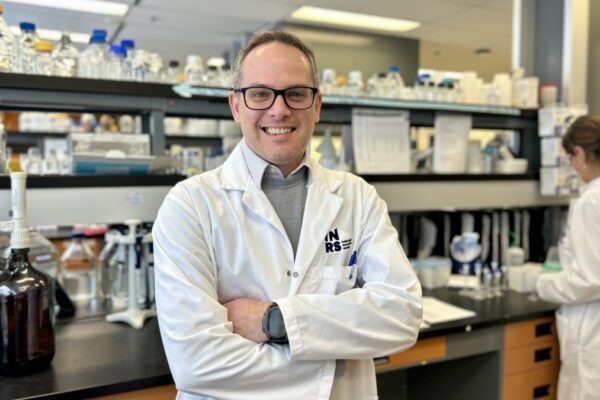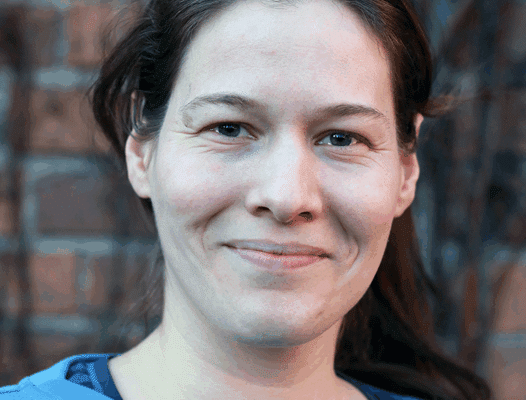- Research Grants
A total of 20 INRS teams are funded by the Government of Canada to provide solutions to major societal challenges.

Institut national de la recherche scientifique (INRS) is receiving $6.5 million in funding from the Government of Canada to support discovery and applied research.
The funding includes the creation and/or renewal of two Canada Research Chairs (CRC), as well as Discovery Grants from the Natural Sciences and Engineering Research Council of Canada (NSERC) and the John R. Evans Leaders Opportunity Fund of the Canada Foundation for Innovation (CFI).
The federal announcement totalling $693.8 million was made recently at the University of Ottawa by Yasir Naqvi, Parliamentary Secretary to the Minister of Health, and Ryan Turnbull, Parliamentary Secretary to the Deputy Prime Minister and Minister of Finance and to the Minister of Innovation, Science and Industry, on behalf of the Honourable François-Philippe Champagne, Minister of Innovation, Science and Industry.
“We are very proud to see such investments in applied and discovery-oriented research. This support from the government strengthens INRS in its mission to train tomorrow’s scientific leaders to tackle real-life problems and provide solutions to society’s major challenges.”
Luc-Alain Giraldeau, Director General of INRS.
Protecting groundwater resources
Professor Geneviève Bordeleau holds the new Canada Research Chair in Groundwater Protection in a Changing World. This Tier 2 Chair is funded to the tune of $600,000 over 5 years.
Did you know that groundwater is the sole source of drinking water for around 30% of the Canadian population? The proportion is even higher in rural and peri-urban areas.
In addition to being essential for human consumption, this resource is also used for agriculture and numerous industrial activities.
However, against a backdrop of global changes linked to the energy transition, climate change and territorial development, the availability and quality of groundwater is under threat.
By combining field studies with laboratory work and hydrogeological or geochemical modeling, Professor Bordeleau will provide concrete solutions to ensure sustainable protection of this precious resource.

“We know very little about our groundwater resources in Québec, and they are much more fragile than we think. Research can help us better understand what is threatening this vital resource and how to preserve it.”
Geneviève Bordeleau, INRS Professor specializing in isotopic geochemistry
The Chair’s work will answer many pressing questions in the context of global change. In particular, it will examine the effects of floods and droughts on well water quality and the expected environmental impacts of developing new energy sources in the subsurface.
Professor Bordeleau has also received financial support from the CFI through the John R. Evans Leaders Opportunity Fund.
At INRS, Professor Bordeleau will collaborate with Professor Isabelle Laurion as well as Professors Jérôme Comte, Bernard Giroux, Erwan Gloaguen, Saeid Homayouni, René Lefebvre, Louis-César Pasquier, Jasmin Raymond and André St-Hilaire. Her main academic partners will be the Université du Québec à Chicoutimi, the Université de Rennes (France), the Institut national des sciences et techniques nucléaires (Madagascar), and the Université de Daloa (Côte d’Ivoire).

Smart photonic devices
Professor Roberto Morandotti holds the Canada Research Chair in Smart Programmable Photonics. This Tier 1 Chair has been awarded $1.4 million in renewal funding over 7 years.
In quantum computing, integrated smart programmable photonics is used to develop high-speed, quantum secure communications in free space and fiber-optic infrastructure.
Professor Morandotti’s team will focus on smart programmable photonics for classical and quantum computing applications.
Their work could contribute to the advancement of emerging technologies such as artificial intelligence (AI), machine learning, quantum information processing and computer model systems of the human brain and nervous system.
“Canada’s science and research sector is solving some of the world’s greatest challenges, all while driving innovation, growth and productivity. Research programs like Discovery give researchers the flexibility to explore the most promising avenues of research as they emerge to ensure Canada remains a world leader in science and new technologies.”
François-Philippe Champagne, Minister of Innovation, Science and Industry
High-quality, diversified research
A total of 19 faculty members from three INRS centres have had their projects funded under the NSERC Discovery Research program, which includes eight NSERC Discovery Launch Supplements totalling almost $4.5 million.
The research carried out is varied, ranging from energy storage and microbial radioresistance to the circular economy, with the common goal of producing discoveries to help solve the world’s most pressing problems.
Congratulations to our professors!



